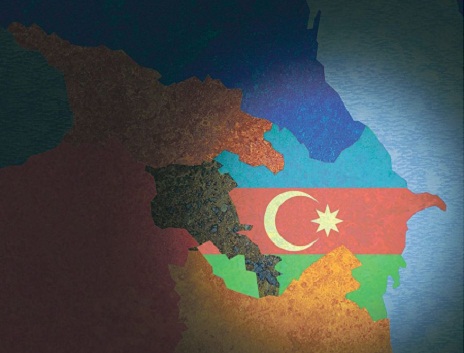The former Soviet Union member country — bordered by Russia to the north, Iran to the south and the Caspian Sea to the east — holds the rights to significant oil and gas reserves, which it has opened to foreign investors from Europe and the United States via the Southern Gas Corridor.
But fighting between Azerbaijan and neighboring Armenia over the Nagorno-Karabakh region, where the pipeline crosses, has escalated in recent months, though largely overshadowed by conflict in Ukraine. Western powers have called on both sides to reach a peaceful resolution to the conflict, which threatens to draw in bigger powers, including Russia, Turkey and Iran and infringe expansion of the Southern Gas Corridor. Azerbaijan and Armenia have both laid claim to the territory during nearly a century of dispute, which included two wars, and violence flared again in recent weeks.
“That’s why we are talking about the essence of the strategic vision of the United States of America, about this corridor. This is not a corridor of gas and oil; this is a corridor of freedom,” Samad Seyidov, chairman of the Foreign Relations Committee of Azerbaijan’s parliament, told a forum hosted by The Washington Times.
Elin Suleymanov, Azerbaijan’s ambassador to the United States, explained that without an overall strategy, the U.S. is wasting efforts to fix a crop of smaller problems in the region.
“The lack of clearly pronounced strategic outlook it’s basically working with immunity deficiency disorder. Because if you have no immunity, you come up with measles, or whatever. That strategic outlook is the immune system. If it doesn’t exist, all small the things pop up,” Mr. Suleymanov said.
With Russia’s expansionism, Mr. Seyidov said, Americans could lose important regional allies.
“America, unfortunately today from the strategic point of view, has much less friends in the region than it had before,” Mr. Seyidov said. “That’s why we would like to see more attention to the region, more strategic vision to the region.”
The recent fighting has been fueled by a quiet arms race, with both countries building up arsenals of powerful weapons supplied by Russia, even as it claims a leadership role in international peace negotiations, known as the Minsk Group process, with the U.S. and France.
As the U.S. levies sanctions against Russia for it’s arming of rebels in Crimea, Mr. Seyidov and other leaders say Western powers must apply the same rules to Armenia in order to achieve peace in the region. Azerbaijan accuses Armenia of infringing on its borders in the disputed territory and would like sanctions imposed.
“Unfortunately in the western world, especially from Europe, we see existence of these double standards. I’m talking about different approaches to the same kind of conflicts,” Mr. Seyidov said. “Nobody even thinks about sanctions against Armenia that did the same crime against a neighboring country.”
Mr. Seyidov argued that if Western nations continued to pick and choose which countries were subject to international law, then aggressors would continue to violate those laws without fear of retaliation.
“If we are thinking about normalizing relationships in the world, we should restore international law.” Mr. Seyidov said. “We should implement the same requirements for those who violated international law. It doesn’t matter if it’s Russia or Armenia.”
Mr. Suleymanov and Mr. Seyidov both stressed that U.S. allies in the region needed reassurance that the U.S. would continue to provide support against Armenia. The conflict has led to the deaths of tens of thousands of people since fighting began in the late 1980s, and displaced more than 1 million, many of whom have been living as refugees for more than 20 years.
“The bigger issue is if the United States is committed to its friends, if it works with them to reinforce the partnerships. Then they feel more secure and the discussions and conflicts are resolved in a much more peaceful manner,” Mr. Suleymanov said.
More about:















































